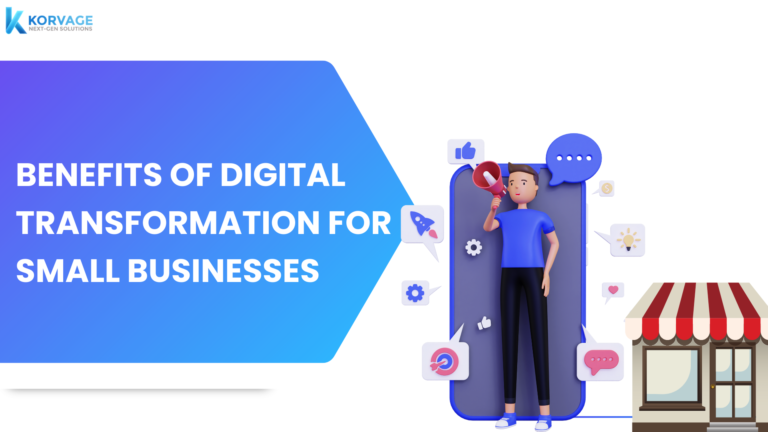How Can Hospitality Businesses Implement Successful Digital Transformation?

Introduction:
The Evolution of Hospitality in the Digital Age
In the last few years, the hospitality industry has gone through a significant transformation determined by advanced technology. From online booking platforms to contactless check-ins, digitalization has changed the way hotels and restaurants operate.
Understanding Digital Transformation: What It Means for the Hospitality Industry
Digital transformation refers to all aspects of a business, fundamentally changing how it operates and delivers value to customers. For the hospitality industry, this means taking advantage of technology to get guest experiences and operations and staying competitive digitally.
Visit Our Site.
Understanding the Need for Digital Transformation:
The Changing Landscape of Hospitality:
As consumer behaviors evolve, hospitality businesses must adapt to emerging trends and technological advancements shaping the industry’s trajectory.
Trends Shaping the Industry:
From mobile booking apps to contactless services, hospitality trends reflect a growing reliance on digital solutions to meet guest demands.
Impact of Technology on Consumer Expectations:
Technology has raised the bar for customer expectations, demanding seamless experiences and personalized interactions from hospitality establishments.
Why Digital Transformation Matters:
In a fiercely competitive market, digital transformation is not an option but a necessity for businesses to remain relevant in the digital era.
Assessing Current Challenges and Opportunities:
Identifying Main Points in Hospitality Operations:
Common challenges such as manual booking processes and disjointed guest experiences highlight the urgent need for digital transformation.
Inefficiencies in Booking and Check-In Processes:
Outdated systems and cumbersome procedures contribute to delays and frustrations for both guests and staff, hindering operational efficiency.
Lack of Personalized Guest Experiences:
Hospitality businesses often struggle to deliver tailored experiences due to limited data utilization and ineffective guest engagement strategies.
Recognizing Opportunities for Improvement:
Amidst challenges lie opportunities for innovation and improvement, presenting hospitality businesses with the chance to enhance operations and guest satisfaction.
Building a Technological Foundation:
Investing in Infrastructure: A robust technological infrastructure forms the backbone of successful digital transformation, enabling seamless connectivity and data management.
Importance of Reliable Networks and Systems:
Stable networks and systems are essential for delivering uninterrupted services and ensuring a positive guest experience.
Scalable Solutions for Future Growth:
Hospitality businesses must invest in scalable solutions that can adapt to evolving needs and accommodate future growth.
Choosing the Right Technologies:
Selecting suitable technologies requires careful consideration of factors such as functionality, scalability, and compatibility with existing systems.
Software and Platforms Tailored to Hospitality Needs:
Hospitality-specific software and platforms offer tailored solutions designed to address industry-specific challenges and requirements.
Leveraging Data for Insights and Personalization:
Harnessing the Power of Data Analytics:
Data analytics provides valuable insights into guest behavior, preferences, and trends, empowering hospitality businesses to make informed decisions.
Utilizing Guest Data for Decision-Making:
By analyzing guest data, businesses can identify patterns, predict trends, and tailor offerings to meet individual preferences.
Predictive Analytics for Anticipating Guest Needs:
Predictive analytics enables businesses to anticipate guest needs and preferences, allowing for proactive service delivery and personalized experiences.
Improving Guest Engagement Through Digital Channels:
Importance of Online Presence:
An effective online presence is essential for attracting guests, providing information, and facilitating bookings through websites and mobile apps.
Optimizing Websites and Mobile Apps:
User-friendly websites and mobile apps enhance the digital experience for guests, making it easy to browse offerings and access information.
Utilizing Social Media for Engagement:
Social media platforms offer valuable opportunities for engaging with guests, sharing content, and building relationships through interactive communication.
Enhancing Communication Channels: Implementing chatbots and email marketing strategies enables hospitality businesses to provide instant support and personalized communication to guests.
Implementing Chatbots for Customer Service:
Chatbots streamline customer service by providing instant responses to common queries, freeing up staff to focus on more complex tasks.
Email Marketing Strategies for Guest Retention:
Email marketing campaigns help nurture relationships with past guests, encouraging repeat bookings and fostering long-term loyalty.

Collaborating with Technology Partners:
Finding the Right Technology Providers:
Researching and evaluating potential technology partners is essential for finding solutions that align with the organization’s goals and objectives.
Negotiating Contracts and Service Agreements:
Negotiating contracts and service agreements ensures that both parties understand their roles, responsibilities, and expectations for the partnership.
Building Strong Partnerships:
Collaborating closely with technology partners fosters innovation, customization, and mutual support in implementing digital transformation initiatives.
Collaboration for Innovation and Customization:
Partnering with technology providers allows hospitality businesses to co-create solutions tailored to their unique needs and challenges.
Measuring Success and Iterating:
Establishing Key Performance Indicators
Defining KPIs is essential for measuring the success of digital transformation initiatives, and providing for performance evaluation and goal attainment.
Metrics for Monitoring Digital Transformation Progress
Key metrics may include revenue growth, customer satisfaction scores, employee productivity, and operational efficiency, among others.
Aligning KPIs with Business Goals and Objectives
KPIs should align with the organization’s strategic objectives, ensuring that digital transformation efforts are focused on delivering business outcomes.
Continuous Improvement Strategies
Continuous improvement is crucial to the success of digital transformation, requiring organizations to regularly evaluate performance to make improvements.
Analyzing Data for Insights and Adjustments
Data analysis provides valuable insights into the effectiveness of digital initiatives, enabling organizations to identify areas for improvement and make data-driven decisions.
Conclusion:
In conclusion, digital transformation presents both challenges and opportunities for hospitality businesses, but those who embrace change, invest in innovation, and prioritize guest-centricity are well-positioned to succeed in the evolving digital landscape.



